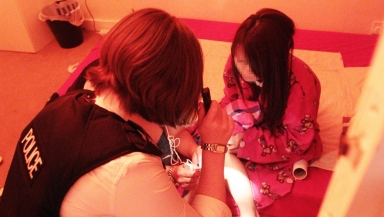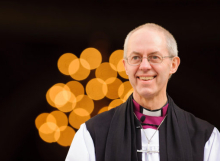
Human Trafficking is on the increase in the UK, the latest report from the National Crime Agency (NCA) warns.
An estimated 2,744 people, including more than 600 children, were trafficking into or within the UK in 2013 – an increase of 22 per cent from the previous year.
Romania was revealed to be the most common country of origin for victims of trafficking, 57 per cent of whom were sexually exploited.
Poland ranked second, with two-thirds of those trafficked becoming victims of labour exploitation, often within the agricultural and construction industries.
The NCA's head of human trafficking team, Liam Vernon, has labelled this kind of exploitation an "insidious and complex crime" and noted that "much of the exploitation is hidden from view."
Many of those trafficked into the UK are brought over "under the pretence of legitimate work," the NCA said, adding that some foreign victims report "being trafficked and exploited by males with whom they were in a romantic relationship."
Within the UK, vulnerable women and girls are often "groomed by older males who supply them with drugs and alcohol," the report said.
In total, 128 British children were suspected victims of trafficking last year, 112 of whom were reported to have been sexually exploited, which marks an increase of 250 per cent from 2012.
It is thought that high-profile cases of the sexual abuse of minors, such as the recent controversy in Rotherham, will have contributed to the increase in reported exploitation.
Disturbingly, the NCA reports that some traffickers and pimps have been known to "mark potential victims with tattoos, with various symbols signifying ownership or to show that a victim is over 18."
"Information also suggests that victims may be marked with numbers, but the meaning of these numbers is not known," the report adds.
It is as yet unknown the extent to which this system is used in the UK, though it is clear that some victims have been bought and sold several times, some for as little as £200.
Victims from Nigeria and Thailand have been told by their traffickers that they must repay the cost of their travel documents and are therefore forced into prostitution to earn money.
Physical and sexual violence, in addition to emotional manipulation, is reported by many victims.
"The NCA report released today has highlighted again that the crime of human trafficking is a global problem, a crime which effects individuals and communities all over the world," said Kate Dangerfield, global campaigns and communications coordinator for Stop the Traffik.
"Trafficking occurs when a person is moved from a community into a community and therefore we believe that communities hold the power to stop it. It is vital that people all over the world know what trafficking is and are empowered to take action to prevent it."
Stop the Traffik, a global advocacy organisation, is encouraging churches to hold Freedom Sunday services on October 19 to raise awareness.
For more information, click here.

















